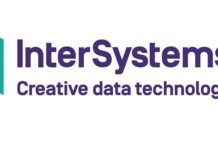St. Helens and Knowsley Teaching Hospitals NHS Trust has installed two EMC Symmetrix® VMAX™ systems as part of a new five-year plan to overhaul its storage infrastructure.
The Trust’s informatics service, which supports 14,000 users, has selected EMC to help it more effectively manage the Trust’s increasing data storage requirements and provide medical professionals with quick and secure access to patient information, anywhere and at any time. St. Helens and Knowsley Health Informatics provides ICT Services for a large health community and is made up of a wide range of medical facilities, including two large acute hospitals, local GPs, and two Community Provider Arms that supply services such as district nurses and health visitors.
With its two HP storage networks nearing end-of-life, the Trust was suffering from poor performance, which risked impacting the level of care it could offer its patients. In addition to this – and alongside the ever-increasing volumes of patient data that it had to manage – the Trust had initiated a plan to digitise more paper processes.
With its two hospitals already paper-free, the Trust found that its digital storage requirements had dramatically increased from 10TB to 40TB in just three years. In December 2010, the Trust chose EMC Symmetrix VMAX to provide a new cloud-based storage infrastructure, which would provide its medical professionals with rapid and secure access to patient data, including x-rays, medical records and clinical scans.
EMC Symmetrix VMAX’s performance, scalability and availability proved key to the Trust’s requirements:
“The performance improvements offered by EMC are key to providing high-performing, reliable clinical systems,” said Phil Corrin, Deputy CIO at St. Helens & Knowsley Health Informatics. “Prior to the EMC VMAX implementation, disk latency, for example, was very high for read-and-write requests sent to disks. “Applications had a 20-millisecond latency before a response was received from the HP array and, as a result, end-users’ requests were at risk of timing-out. “With EMC, the average disk latency has been halved and is now well under 10ms at all times, allowing critical systems to respond faster to users and run more smoothly.”
In addition, the FAST VP technology, which is used by a wide range of applications including SQL servers, Exchange, and VMware, allows the Trust to tier its storage and prioritise critical information for the more powerful servers, while non-urgent data can be stored in less resource-intensive arrays. This ensures that the most important data runs at maximum performance, ensuring it is available whenever the medical teams need it, while increasing efficiency and optimising cost.
The implementation also requires no downtime when migrating to new platforms or running maintenance work, which means that the IT team is able to work on the system without impacting the end-user. “Patient care is at the centre of every technology decision we take and we need to ensure that medical staff have access to the information they need, whenever they need it,” concluded Mr. Corrin. “As the Trust becomes increasingly digitised, our storage requirements are only going to increase, but we know that EMC VMAX will help us to rise to the challenge.”
























